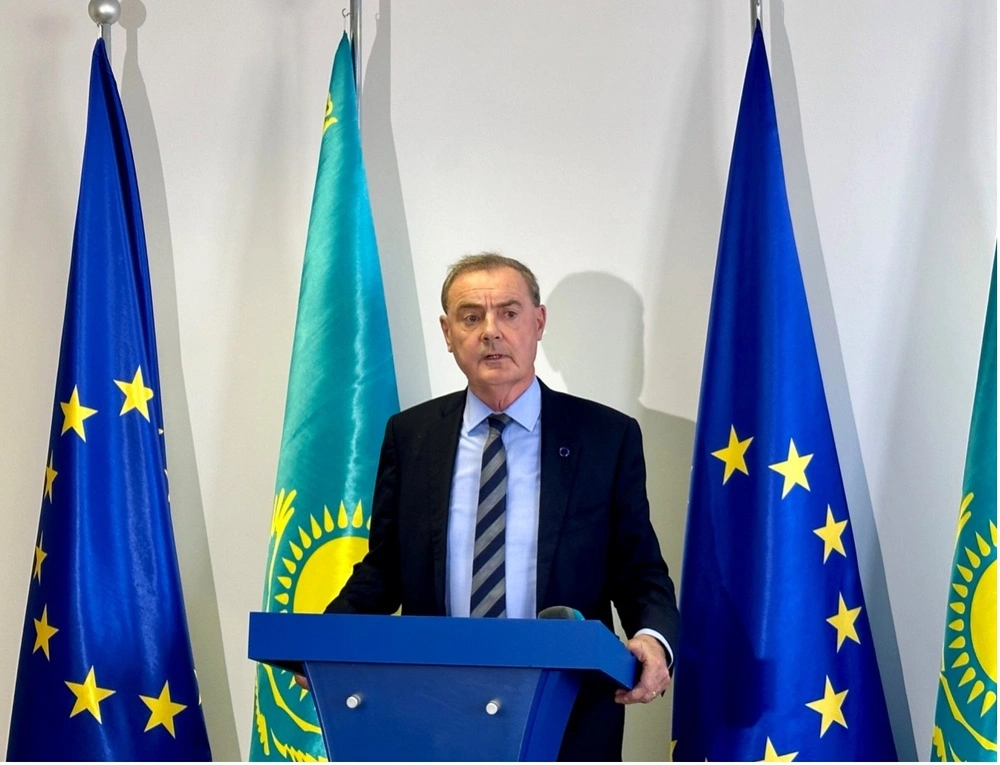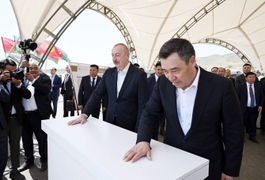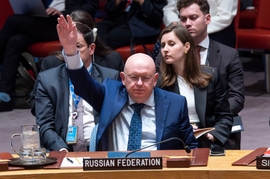David O'Sullivan, the European Union Special Envoy for Sanctions, expressed positivity regarding the developing relationship with Kazakhstan during his second visit to the country within seven months.
Speaking at a press conference in Astana on Tuesday, O'Sullivan addressed concerns about the potential evasion of sanctions and the re-export of goods from Kazakhstan to Russia.
Despite ongoing challenges related to sanctions evasion, O'Sullivan reiterated the EU’s dedication to engaging in a constructive dialogue with Kazakh authorities. He emphasized that, while the EU is closely monitoring the activities of involved companies, there are currently no intentions to impose sanctions on these entities.
“We respect the decision of other countries, like Kazakhstan, not to join the sanctions, but we welcome constructive dialogue with the Kazakh authorities,” O’Sullivan said. “We are looking at how Kazakhstan can help prevent sanctions bypass and re-export of goods that could end up on Russian military equipment.”
He went further to underscore the significance of the partnership between the EU and Kazakhstan, especially in areas such as green technologies and transportation.
"The EU is Kazakhstan’s main trade and investment partner. We have many ambitious projects and plans together, and we want to continue to promote our relations in a positive and productive way," he added.
Expressing hope for increased cooperation, O'Sullivan stressed the importance of avoiding sanctions becoming a hindrance to their bilateral relations.
“We do not want sanctions to hinder our closer and deeper cooperation,” he reiterated.
O'Sullivan, a former Secretary-General of the Commission and a senior EU diplomat, last visited the region in April of the current year. The role of the EU Special Envoy has become crucial in the broader context of the EU’s strategy to prevent Russia from acquiring crucial technology and income for its actions in Ukraine.
The European Commission established the position of International Special Envoy for the Implementation of EU sanctions to facilitate continuous, high-level discussions with third countries, aiming to prevent the evasion or circumvention of the restrictive measures imposed on Russia since the beginning of its conflict with Ukraine.
Historically, Kazakhstan maintained strong economic ties with Russia, particularly in the energy sector, along its 7,500-kilometer border with the northern neighbor. However, relations faced challenges after Russia’s invasion of Ukraine in February 2022.
President Kassym-Jomart Tokayev emphasized Kazakhstan’s commitment to international norms by not recognizing the independence of the so-called Donetsk and Luhansk People’s Republics. Kazakhstan also refrained from assisting Russia in circumventing sanctions, leading to assertive rhetoric from certain Russian politicians.
In response to Kazakhstan’s stance, Moscow affirmed its respect for Kazakhstan’s relations with third countries, emphasizing existing agreements that define the comprehensive nature of the alliance between the two nations, covering politics, security, trade, investment, and other spheres.







 President Ilham Aliyev shed light on the evolving contours of the peace process with Armenia during an international conference in Baku this week. ...
President Ilham Aliyev shed light on the evolving contours of the peace process with Armenia during an international conference in Baku this week. ...
 Azerbaijan and Armenia started the process of demarcation of their border on Tuesday, with the installation of the first border markers based on ge...
Azerbaijan and Armenia started the process of demarcation of their border on Tuesday, with the installation of the first border markers based on ge...
 Iran and Pakistan have signed eight cooperation documents in various fields, and agreed to strengthen ties to fight terrorism in the region.
Iran and Pakistan have signed eight cooperation documents in various fields, and agreed to strengthen ties to fight terrorism in the region.
 Iranian President Ebrahim Raisi expressed Tehran’s readiness to participate in significant development projects in Sri Lanka during the inauguratio...
Iranian President Ebrahim Raisi expressed Tehran’s readiness to participate in significant development projects in Sri Lanka during the inauguratio...
 As the conflict between Ukraine and Russia escalates, the strategic importance of Kharkiv, Ukraine's second-largest city, has come sharply into focus.
As the conflict between Ukraine and Russia escalates, the strategic importance of Kharkiv, Ukraine's second-largest city, has come sharply into focus.



